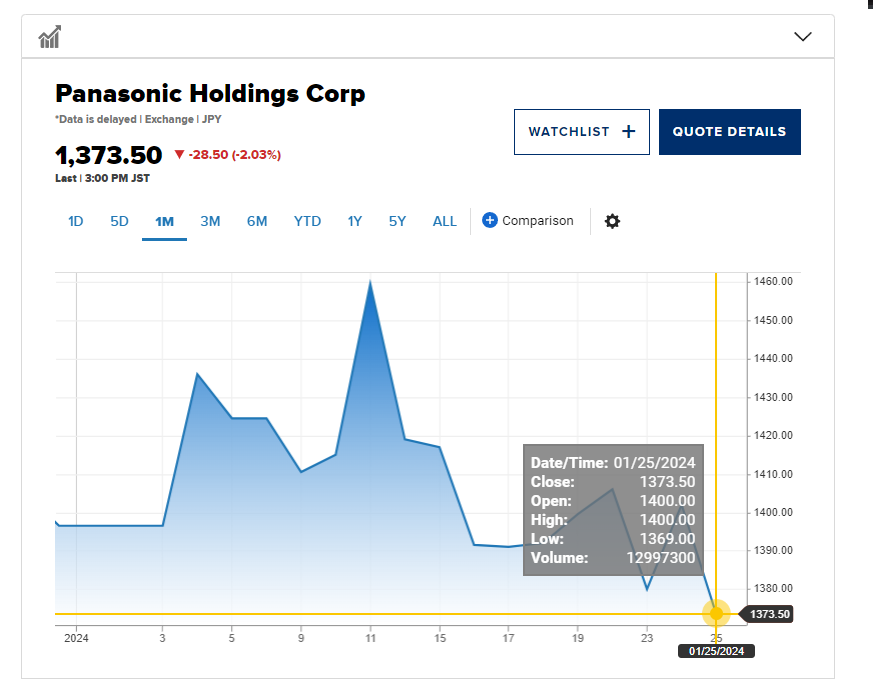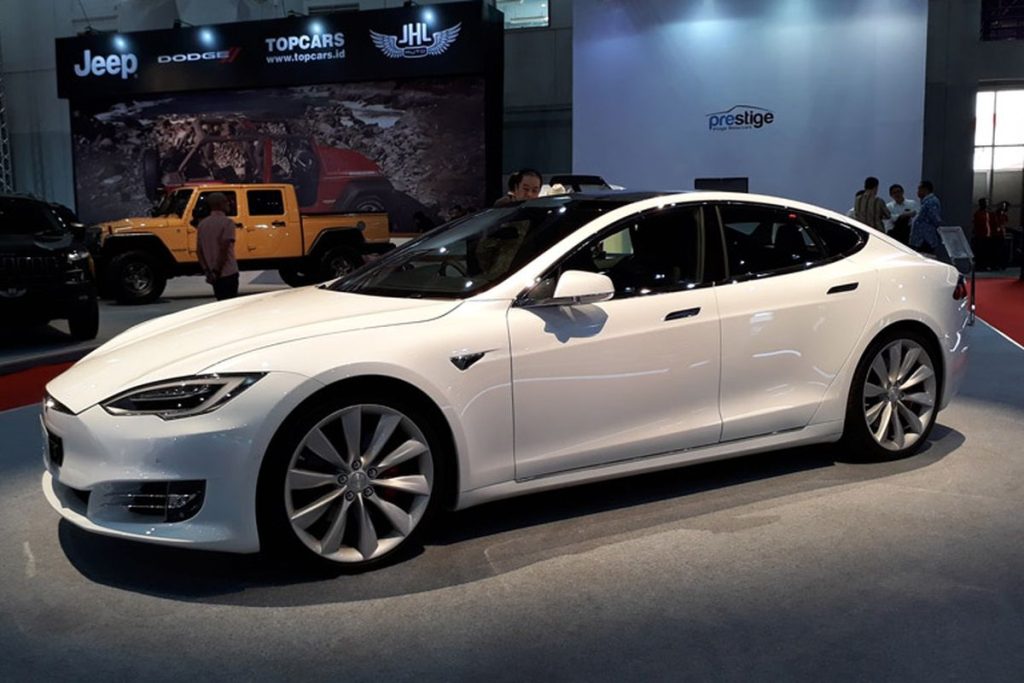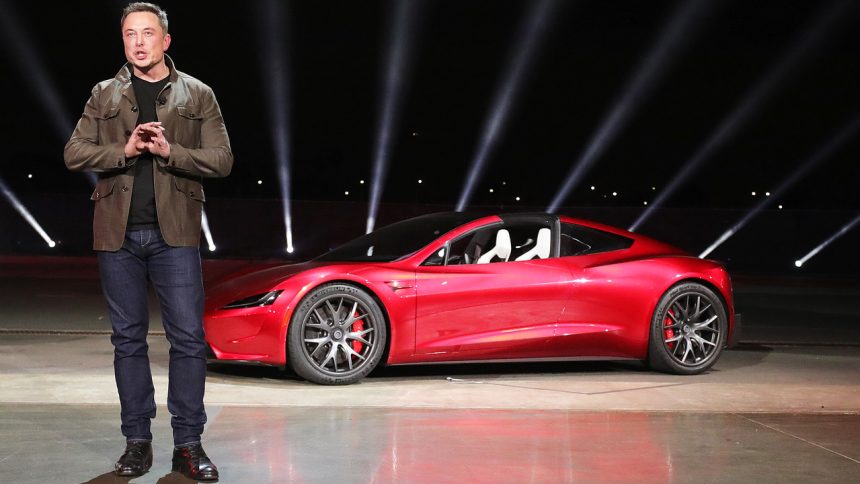The stocks of electric vehicle manufacturers and Tesla’s suppliers in Asia experienced a significant decline on Thursday. This drop occurred as Tesla failed to meet its revenue and profit targets for the fourth quarter and issued a warning about slower sales in the upcoming year.
During a recent presentation to investors, Tesla indicated that there might be a significant decrease in the growth rate of vehicle volume in 2024 compared to the previous year. This is because the company is focusing on the launch of its upcoming “next-generation vehicle” in Texas.
LG Display, a renowned South Korean company that provides car displays for Tesla’s Model 3, experienced a decline of over 4% in its shares.
The stocks of companies that supply batteries to Tesla experienced decreases in their share prices. LG Energy Solution saw a significant drop of up to 3.8%, Panasonic Holdings fell by over 2%, and Samsung SDI slipped by 1.3%.

Tesla’s rivals in Asia also fell.
In the fourth quarter of 2023, BYD, a leading manufacturer of electric vehicles (EVs), experienced a decline of approximately 2%. This decline occurred after BYD surpassed Tesla to become the highest-selling EV maker
As of January 2nd, the Chinese electric vehicle manufacturer disclosed that it sold approximately 526,000 vehicles in the quarter, surpassing Tesla’s sales figure of around 484,000.
Despite facing competition from other electric vehicle manufacturers, Tesla remained the leading seller of EVs overall in the year ending December 2023. During this period, Tesla successfully delivered over 1.8 million vehicles to customers, surpassing BYD’s sales of slightly less than 1.6 million.
Tesla’s competitors in the electric vehicle (EV) industry, namely Nio, Xpeng, and Li Auto, experienced significant losses in the Hang Seng index. Nio’s shares plummeted by more than 7%, while Xpeng’s shares decreased by 6.05% and Li Auto’s shares declined by 4.47% during early trading.
Revenue and EPS miss expectations

Tesla’s financial results fell short of expectations in terms of revenue and earnings per share (EPS). The performance of Elon Musk’s company is closely watched as it serves as an indicator for the overall electric vehicle industry.
The shares of Tesla suppliers have experienced a decline following the company’s underwhelming financial results. Additionally, Asian electric vehicle manufacturers have also faced a decrease in their stock prices due to Tesla’s pessimistic production forecast for
In the fourth quarter, Tesla’s earnings experienced a 3% growth, reaching $25.17 billion. However, this figure fell short of LSEG’s (formerly Refinitiv) anticipated revenue of $25.6 billion.
In the fourth quarter, Tesla’s earnings per share were 71 cents, falling slightly short of the 74 cents per share projected by LSEG.
Tesla’s net income for the last quarter saw a significant increase, more than doubling to $7.9 billion, or $2.27 per share. This growth can mainly be attributed to a one-time noncash tax benefit of $5.9 billion.
In comparison to the previous year, Tesla recorded a significant increase in its earnings for the same period. The amount was more than double the $3.7 billion or $1.07 per share that was reported in the previous





